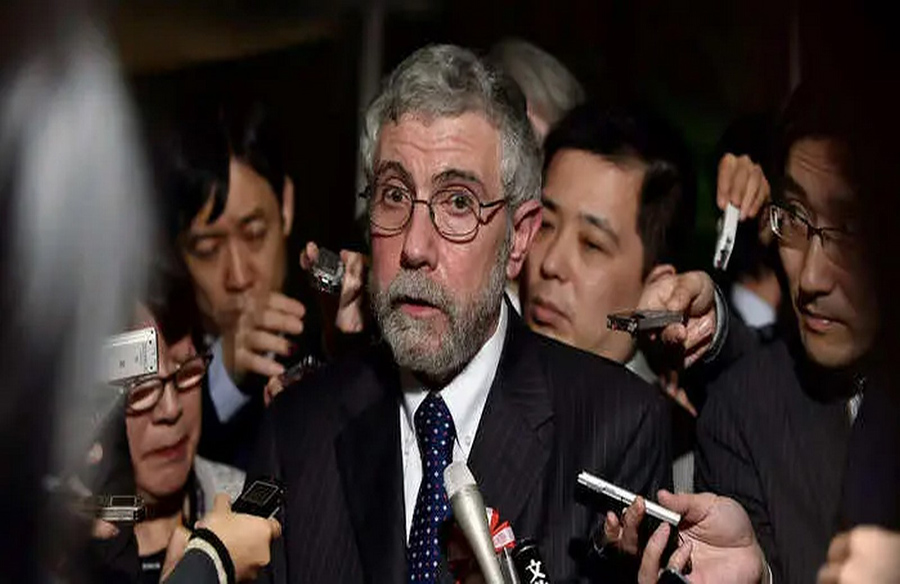Nobel economist Paul Krugman challenges the prevailing notion of a looming economic crisis, suggesting that Americans may be overestimating the severity of inflation. Krugman coined the term “vibecession” to describe the pervasive negative sentiment surrounding the economy, particularly evident during a period of heightened inflation in 2022. However, he argues that assessing the economy’s health solely based on grocery prices is misleading and fails to capture broader economic trends.
Fluctuations in Grocery Prices: A Misleading Indicator
Krugman highlights the volatility of grocery prices, citing the example of egg prices, which surged to nearly $5 per carton in mid-2023 before sharply declining later in the year. This price spike, he notes, was primarily driven by external factors such as an outbreak of avian flu, rather than underlying economic conditions or policy measures. Consequently, he cautions against using grocery prices as a barometer for assessing economic performance, dismissing the notion of “vibeflation” – the perception of inflated inflation due to high grocery bills – as misguided.
A Shift in Inflation Dynamics
While inflation rates have moderated since their peak in 2022, Krugman acknowledges that Americans continue to grapple with the consequences of sustained price increases over recent years. Data from the Bureau of Labor Statistics reveals a significant uptick in food prices over the past few decades, with consumers allocating a larger share of their disposable income towards food purchases. Despite the recent slowdown in inflation, the lingering impact of past price growth contributes to ongoing economic concerns.
Challenging Misconceptions on Inflation
Krugman’s views on inflation have sparked controversy in the past, particularly his assertion that the “war on inflation” is over when excluding certain expenditure categories from official inflation metrics. He emphasizes the importance of relying on objective data and statistical analysis to gauge economic conditions, cautioning against allowing personal sentiments or political biases to influence perceptions of inflation. Instead, he advocates for a nuanced understanding of economic indicators and encourages a critical evaluation of prevailing narratives surrounding inflation.
In conclusion, Paul Krugman’s insights prompt a reassessment of public perceptions regarding inflation and economic stability. By challenging misconceptions and advocating for a data-driven approach, Krugman underscores the complexity of economic dynamics and the need for informed discourse on key issues impacting society.




Leave a Reply